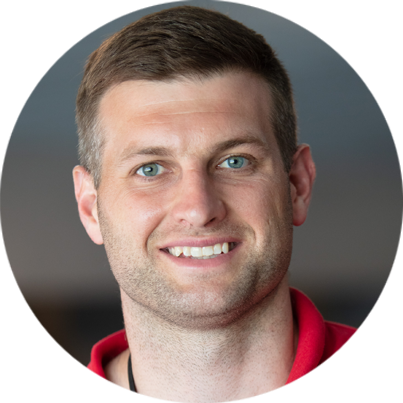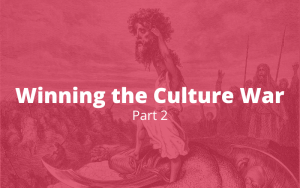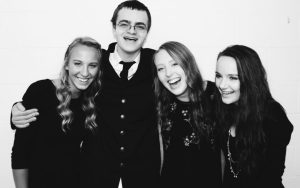Written by David Seibel | 1.7.2020
This post is the sixth in Project Legacy, a series of interviews that aim to learn from leaders outside education to influence those inside education. You can read previous contributions from Jake Stamper (Business), Jeff Worrell (Politics), Steve Poe (Ministry), and Tony Van Hoozer (Business) on our blog.
Dale Needleman is truly a change agent and kingdom builder. He has spent his career focusing on growing business and creating jobs. Through recycling electronics at Technology Recyclers, he is assisting companies with waste problems and saving the earth. As a partner at Farm 365, he has helped create a fresh, local, and healthy food supply, plus previously unavailable jobs in cities. At Truth at Work, where Dale served as COO, he equipped leaders with tools to run their businesses in a godly, biblical way. In this post, I share three lessons that those in education can learn from Dale Needleman’s life and leadership.
The human mind is the brightest display of the power and skill of the Infinite Mind.
Lesson #1: Patient Study Pays Off
In his historic essay Education: Our Own Work, John Todd writes, “Patience is a virtue kindred to attention, and without it, the mind can not be said to be disciplined. Patient labor and investigation are not only essential to success in study, but are an unfailing guarantee to success.” When you look upon the height and breadth of Dale’s achievements in ministry, business, and the community, we must also look at how he taught himself to get there.
Dale received training at the Tuck School of Business of Dartmouth University to provide consulting services, as well as at The Center for Creative Leadership and the University of Wisconsin. Intrigued with industrial psychology and human behavior, he is also practiced in many personality assessment tools. For his first job, he performed engineering research.
Folks credit Dale as someone who “builds businesses with a purpose.” Much of his building ties back to him building up his knowledge and skills through education. For educators today, we must not forget what John Todd said: “The human mind is the brightest display of the power and skill of the Infinite Mind. It is created and placed in this world to be educated for a higher state of existence.” Dale, through direct education and thoughtful reflection on his experiences, has developed a mindset and skillset that has caused a multitude of people to flourish. Similarly, educators must go deep in learning before they can go deep in making an impact on others. Educators are called to dig a deep well of knowledge and skills that other people can drink from for the rest of their lives.
When I was asked to preserve the status quo, I knew it was time for me to leave.
Lesson #2: Embrace Who God Created You to Be
Dale knows he is a builder, not a caretaker, and that he is better with internal operations than with external vision. In his words, “I am better as a number two guy. I am not scanning the horizon looking for a dream. That said, I have a vision for every particular aspect of the business operation. I am not the one who is thinking outside the box every day.”
As a leader in a factory, he had his finger on the pulse of everything within the operation. Dale spent more time in the steam room talking to the workers than sitting in the executive suite. In his first job, he learned that he much preferred building and growing rather than preserving the steady-state. He says, “I will sabotage anything that needs caretaking. In my first job, I enjoyed working in research so we could dirty the place up a little bit and learn how to improve. When I was asked to preserve the status quo, I knew it was time for me to leave.” Embracing this God-designed disposition early in his career has enabled Dale to experience the cumulative effect of steady incremental growth in one direction.
For educators, it is tempting to imitate what you see gifted teachers doing. But as John Todd wrote, “No man was ever great by imitation. Let it be remembered that we cannot copy greatness or goodness by any effort. We must acquire them by our own patience and diligence.” If Dale spent his career trying to imitate the vision-casters, the salesmen, and the caretakers, he would have spent time trying to be someone he was not. Many people learn who they are by spending decades trying to be people they are not. One of the greatest gifts an educator can give a child is to see what they are good at and feeding energy and motivation to those gifts.
Dale has spent over 30 years in manufacturing operations, engineering and R&D within multiple environments and industries. His consulting has spanned a wide range of operations, from start-up and entrepreneurial engagements to workforce and systems efficiency improvements. Dale trained at the Tuck School of Business of Dartmouth University to provide consulting services, as well as at The Center for Creative Leadership and the University of Wisconsin.

As Head of School at Coram Deo Academy, Dave Seibel aims to cultivate a generation of scholar-disciples who are passionate about learning. He is husband to Brooke and father of three future Coram Deo students. He is a graduate of Wabash College, Marian University and in final Master of Divinity course at Southern Seminary.




